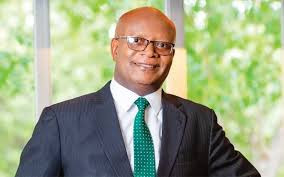By Tim Middleton The passing of Olivia Newton-John this week has set many male minds back to the late 1970s when she starred in the hit film Grease with John Travolta, with its many hit songs including the finale “You’re the One that I Want” — John Travolta was not the only one to think that of Olivia Newton-John!
Yet even his character was confused in the film as he wanted to have a close relationship with sweet Sandy, whom he had met during the summer holidays, yet he did not wish to drop his bad-boy, tough-guy image at school. Did he really know what he wanted?
In many ways he was the living embodiment of the saying that “you can’t have your cake and eat it”, a saying that has been translated to mean “to have or enjoy the good parts of something without having or dealing with the bad parts”. Interestingly, however, the original and more accurate saying puts the order the other way round, namely “You can’t eat your cake and have it too”. Indeed, we might go as far as to say that even in this case – the matter of which order we put the having or eating the cake — we cannot have it both ways! Which do we really want?
Many famous people, not simply film stars like those mentioned above, clearly want to eat their cake but have it still. They seek the fame and fortune yet bemoan the constant attention that goes with it. They delight in promoting themselves but decry any criticism of themselves. They want privacy but belt out tweets all the time. However, it is not simply famous people who are like that; we are all like that. We want to eat our cake but still have it. We want the best of both worlds. Leaders are desperate for privileges they believe must come with their role but do not want to honour the responsibilities to others that goes with it. Teenagers want to be treated as adults but also want adults to do everything for them; they want independence but go crying to adults when trouble arises.
Which leads us to education — do we know what we want? Parents appear to be desperate for schools to provide their children with top results and qualifications, in order for their children to be able to go to university or get a good job, yet those parents are the very same people who are the employers who are not interested in qualifications (not least as everyone comes out with the same). Parents seem to want their children to go to school to learn rote-style in order to pass examinations yet as employers they are wanting people who have critical thinking and creativity, who know how to think for themselves and not be told everything they must do. Many parents are set on insisting their child focuses on academics and academics alone while at school yet as employers they want to have people who have all-round characters, found in their involvement in sport, culture and service. Do parents who are employers really know what they want?
Parents (and governments) want their children to develop communication skills, to share their thoughts and views, but do not want them to speak against them. Parents want their children to learn collaboration skills but do not want them to play team sports where these are developed the most exclusively.
Parents want quality education at a price but not want to have to pay for it, even when they can; parents moan about school fees going up (demanding that they must first give permission) but make no complaints or noise when their own product prices go up (when they do not have to ask for permission).
Do we know what we want? We seem to want the best of both worlds but risk up end up having nothing of any worlds. If we are not careful it will not be a matter of not eating your cake and having it but there being no cake at all, either to eat or to have.
We want and need to provide an education that is “multiplying” and “electrifying” (in the words of the ‘Grease’ song). We had “better shape up ‘cause we need” a plan (not a man); “we had had better shape up, we better understand, to our heart we must be true. There is nothing left, nothing left for us to do but to find [the plan] we want and the [plan] we need — oh, yes, indeed”. We need a plan which can keep us satisfied, which will prove our “faith is justified, for sure, sure down deep inside”. We need it now before more people pass, before more years pass, before we can no longer either eat or even have the cake.
- Tim Middleton is the executive director of the Association of Trust Schools [ATS]. The views expressed in this article, however, are solely those of the author in his private capacity and do not necessarily represent the views of the ATS.
- email: ceo@atschisz.co.zw
- website: www.atschisz





